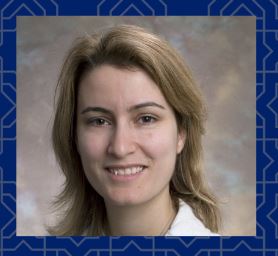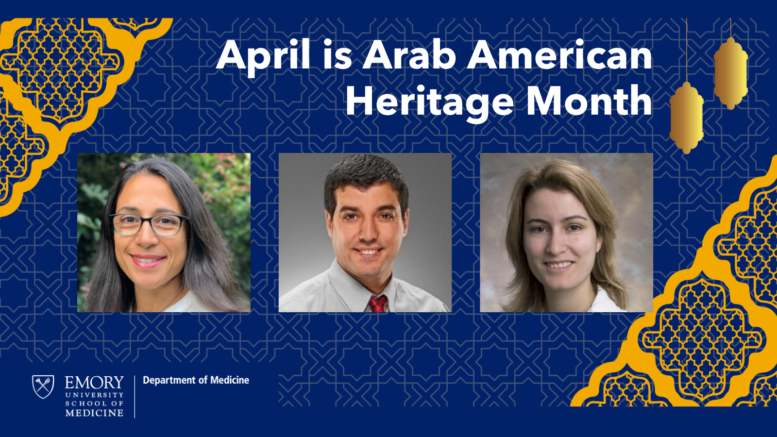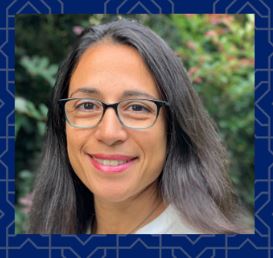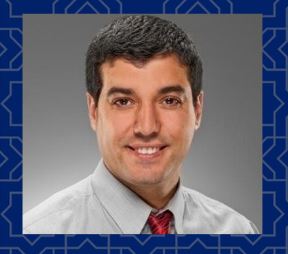In an effort to acknowledge the diversity of our community, the Office of Equity and Inclusion launched a celebratory initiative to promote sharing, awareness, and learning. Here, we recognize and celebrate our faculty and staff by hearing their stories and experiences.
Submit a nominee for future Affinity Month Celebrations.
Did you know?
“Arab” is a cultural and linguistic term. It refers to those who speak Arabic as their first language. Arabs are united by culture and history. 22 countries make up the Arab world: Algeria, Bahrain, the Comoros Islands, Djibouti, Egypt, Iraq, Jordan, Kuwait, Lebanon, Libya, Morocco, Mauritania, Oman, Palestine, Qatar, Saudi Arabia, Somalia, Sudan, Syria, Tunisia, the United Arab Emirates, and Yemen. At least 3.5 million Americans are of Arab descent. About 94% live in metropolitan areas. New York, Detroit, Los Angeles, Chicago, Washington, D.C., and Northeastern New Jersey are the top six metro areas of Arab American concentration.
This month we spotlight three of our Arab-American DOM colleagues…
Shirine Allam, MD
Associate Professor of Medicine in the Division of Pulmonary, Allergy, Critical Care and Sleep Medicine
In what ways has being a part of the Arab American community influenced your professional life as it relates to your current role/responsibilities?
The Arab world is made up of various countries each with its unique set of traditions, dialect, and culture. I come from Lebanon, a small country on the eastern shore of the Mediterranean Sea. I moved to the U.S. in 2002, at a time when Arab and Middle-Eastern people were eyed with suspicion by many. That allowed me to personally experience stereotyping and the harm it can cause. I have since made specific efforts to identify and combat my own stereotypes so that they do not influence my interactions with others.
Tell us something about your Arab culture and traditions that you would want us to know.
Lebanese culture and traditions center around family, food, and hospitality. You cannot enter a Lebanese home without being offered food and drink, and declining will be taken as an offense! Family gatherings often take the shape of multiple-course lunches that can last three to four hours. Lebanese people are also resilient and perseverant, which is how they have survived years of hardship, always ready to rebuild and start from scratch. One of my favorite Arabic sayings translates as “Never resent a bad thing as it may turn out to be good,” a saying that reflects wisdom and optimism and that I often quote to my children and my trainees when they are faced with a disappointing outcome.
How do you engage with the Arab community outside of your professional life?
I regularly cook Lebanese cuisine at home, which my children have grown to love. My mother often sends me Lebanese sweets on holidays to enjoy with family, friends, and coworkers. Most of my family still lives in Lebanon and I visit when I can.
Associate Professor in the Division of Hospital Medicine
In what ways have being a part of the Arab-American community influenced your professional life as it relates to your current role/ responsibilities?
I would say that it has influenced all aspects of my professional life. I was born and raised in Lebanon during the civil war which was filled with challenges, but we rose from the difficulties stronger and more appreciative for all that we have. Immigrating to the U.S. after September 11, 2001, added another layer of challenges but made me more determined to work hard to show a good set of skills and patience to make me succeed through residency, fellowship, and later on as a provider hospitalist. This has led to shaping my personality to be honest, hardworking, and dependable which paved the way for me to become the site director of the Emory Johns Creek Hospitalist team for more than 10 years where I am honored to lead our 22 FTE outstanding hospitalist attendings and APPs providing excellent care to our community.
Tell us something about your Arab-American culture and traditions that you would want us to know.
Arab-American culture is very rich in multiple aspects. One of my favorite traditions is the community gatherings, especially during the month of fasting known as Ramadan when we abstain from eating and drinking from dawn till sunset remembering those who are less fortunate and lack means everywhere. At sunset, we eat together, share different dishes, and pray together, which nourishes us physically and spiritually. For the last two years, we have been supported by our leads at Emory to arrange Iftars (breaking fast dinners) at multiple Emory Hospitals as part of Emory JEDI (Justice, Equity, Diversity and Inclusion) where lots of colleagues joined us from all traditions and faiths to celebrate eating together as one big Emory family.
How do you engage with the Arab-American community outside of your professional life?
Outside work, I have had the opportunity to support sick individuals and volunteer for NGOs. In my personal life, I am blessed to be married to a wonderful Lebanese American woman and together we teach our two sons the importance of our culture and our language so they can feel proud of their heritage. We belong to a large family in Atlanta where there are frequent occasions to meet and celebrate usually around our famous tasty Lebanese Arabic food and desserts. One of the lovely traditions is attending wedding or engagement ceremonies where everyone come to dance, dressed in pretty traditional clothes, and eating great authentic Arabic food. Our food usually includes a variety of specialty dishes from Moroccan couscouss to Lebanese tabbouleh and mezza to gulf mansaff.
Nadine Rouphael, MD
Sumner E. Thompson, III Distinguished Professor of Vaccinology and Infectious Diseases
I am a proud Arab American (and French too!). I come from a modest family that values education above all else as both my parents were teachers. My family has been anchored for centuries in Lebanon. Growing up by the sea, sailing West was a temptation the Phoenician in me could not resist. Now Atlanta has been my home for two decades with my husband—who is also a citizen of the world—and our three children. Being who I am, is having a rich culture, a blend of traditions and complex identity with openness to the world, resilience with faith for better tomorrows, authenticity with adaptation to changes embracing American experiences and opportunities. When I reflect on who I am as a Lebanese American I think about the values, the humor, the playfulness, the perseverance, the passion, the food (and lots of it), the open arms, the family, the grueling farewells at airport, the nostalgia and perhaps at times some tiny loudness and hastiness (after all, my favorite word in all languages is “Yalla”).




Be the first to comment on "Arab American Heritage Month- April 2024"